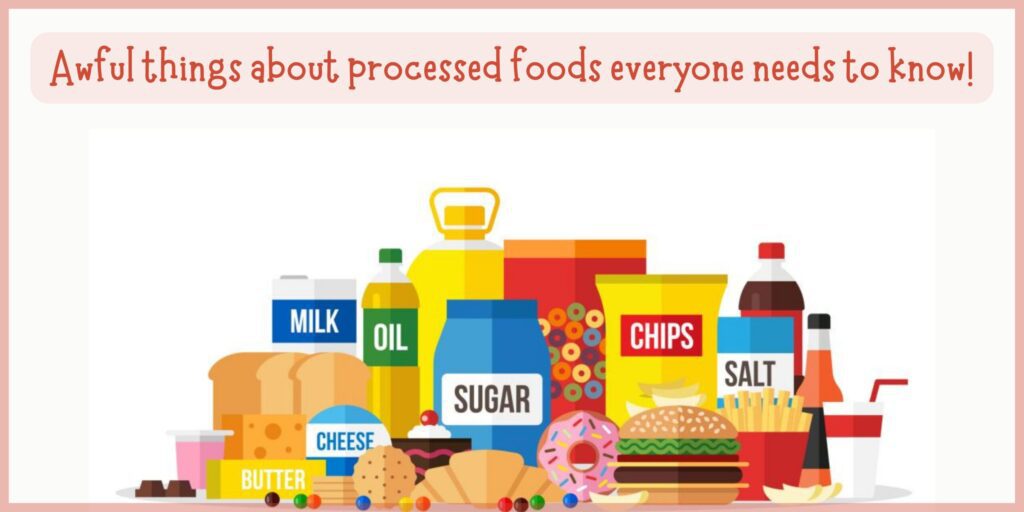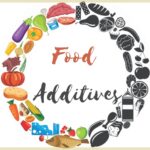Side effects of processed foods
The side effects of processed foods are expounded thoroughly in this post. Processed food is the type of food that has been altered in any way from its original condition, including washing, canning, freezing, or adding additives; the baking, cooking, or preparation operations are all considered processing. Sodas, other sweetened beverages, reconstituted meats such as sausages, nuggets, fish fingers, processed ham, instant noodles, instant soups, candy, ice cream, crackers, chips, breakfast cereals, processed cheese products, packaged bread, baked goods such as pizza, cakes, and pastries, and frozen or ready meals are all examples of ultra-processed foods. While the meals containing processed food may taste fantastic, they are laden with unhealthy additives so it is critical to pay attention to what you eat. Sugar, artificial chemicals, refined carbs, and trans fats are all common constituents in chemically processed meals, often known as ultra-processed foods. Chemically processed foods typically comprise refined components and synthetic compounds that have minimal nutrient benefit, as well as chemical flavouring agents, colours, and sweeteners.
Salty foods that you should be careful about
Sodium is frequently used to preserve food, and even if you’re cautious not to add it, it’s very certainly already in your food as a result of processing. You may manage your sodium intake by carefully checking labels and looking for salt-free or sodium-reduced products. Anything containing more than 600 milligrams per 100 grams of portion sizes is regarded as high, whereas anything containing less than 300 milligrams is viewed as low. Remember that sodium could also be referred to by other words, such as monosodium glutamate or disodium phosphate. The side effects of processed foods include obesity and sickness all across the world. Canned soup, cold cuts, cured meat, sandwiches, bread rolls, burritos, taco fillings, and pizza should all be avoided. One cup of canned soup has half of the daily required amount of salt, whereas cold cuts and cured meat need around six thin slices to contain half of the daily recommended dose. One fast-food sandwich or burger has the equivalent of one day’s worth of salt, and even though there isn’t much salt in one piece of bread or roll, it adds up if you consume bread frequently. One slice of pizza with a variety of toppings contains around half of the daily recommended amount of salt, and Burrito and taco fillings may include meats and cheeses that are high in sodium. An excessive salt intake might cause high blood pressure, cardiovascular disease, stroke, and calcium depletion, part of which could be drawn from the bone. In some cases, processed food may lead to dementia.
Sugary foods that you should be careful about
Sugar, like salt, is frequently added during processing. It is used to enhance the flavour and texture of dishes. It is found in a variety of foods, including cereal and baked products. However, it may also be found in foods such as spaghetti sauce. Just like with salt, checking labels allows you to manage the amount of sugar you consume. For a 2,000-calorie diet, an average adult diet, you must strive for fewer than 50 grammes of processed sugar, or 200 calories, per day; added sugars should account for less than 10% of total calorie intake. Additionally, look at the ingredients since some might cause concern, and the list includes High-fructose corn syrup, molasses, dextrose, malt syrup, corn syrup, and turbinado sugar. The side effects of processed foods entail high sugar consumption that results in the following: teeth decay, skin problems, emotional disorders, heart disease, and heart attacks, insomnia, type 2 diabetes, cravings and weight gain, cognitive fog, and diminished energy.
What to keep an eye on
Trans fats, which are found in processed foods such as baked goods, salty snacks, and margarine, can influence your cholesterol and cause inflammation, which has been related to heart disease, stroke, and other health problems. Trans fat is becoming increasingly difficult to obtain as a result of recent government regulations, but check the labels: A serving amount of more than 5 grammes per 100 grammes is excessive. Additionally, keep in mind that even if a product’s tag states that it contains no trans fat, it may contain up to 0.5 grammes. To prevent ultra-processed food while on the go, there are certain things you can do to limit your exposure. For example, if you want to know which meals are prepared in-house, you could inquire your waitress about them. The side effects of processed foods can cause gastrointestinal problems, infertility, and organ damage. When you make your own food, you have complete control over what goes into it and how much of each component you use.



